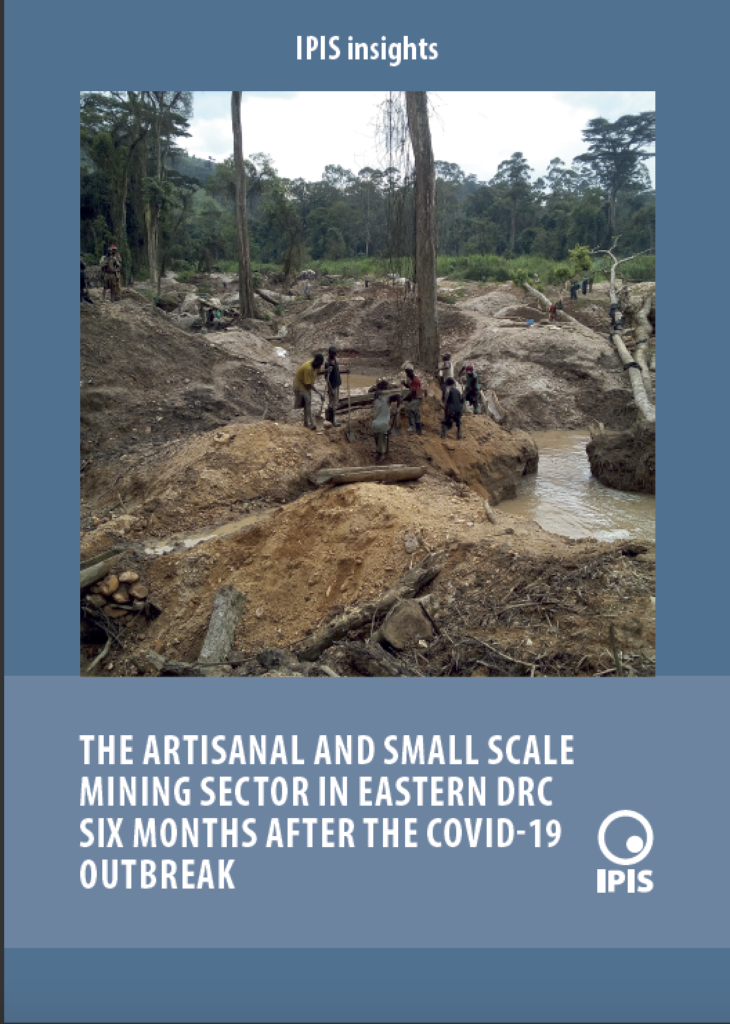In April 2020, when the Coronavirus spread around the world, IPIS started monitoring the impact of the pandemic on the production and trade of the artisanal and small-scale mining (ASM) sector in eastern Democratic Republic of the Congo (DRC).
IPIS published a report in October 2020 that discussed the results of several rounds of consultations with ASM stakeholders at nearly 90 Tin, Tantalum, Tungsten and Gold (3TG) mining sites in eastern DRC, conducted between May and June 2020.[1]
At that time, ASM stakeholders seemed to fear the economic collapse as much as the virus. When DRC and neighbouring countries closed their borders, all mineral processing houses reported great difficulty to export; all they could do was to stock their minerals until export would be feasible again. Due to export difficulties, processing houses did not get any income. Therefore, many ceased to prefinance traders. Consequently, traders ran low in cash and many of them stopped visiting mining sites. The lack of liquidity among local traders forced miners to accept significant lower prices for their mineral production, resulting into a socioeconomic crisis for local mining communities.
In October 2020, IPIS organized another round of consultations at the same 87 mining sites, in order to evaluate the impact of Covid-19 on ASM on the medium term, six months after Covid-19 reached eastern DRC.
Observations made in October 2020 showed that many people in mining communities believed that Covid-19 was over. Restrictive measures were no longer respected, neither controlled by government agents. Nevertheless, this report will discuss the extent to which the socioeconomic impact on the ASM sector was still being felt.
The current report discusses how mineral prices have since increased considerably (section 3.1), as well as the number of traders (section 3.2). Cash flow problems however persisted and continued to affect mineral trade.

This document has been produced with the financial assistance of the European Union. The contents of this document are the sole responsibility of IPIS and can under no circumstances be regarded as reflecting the position of the European Union.


